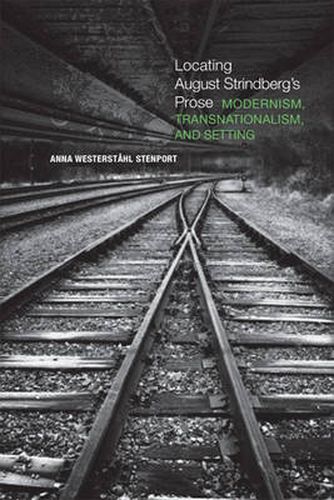Readings Newsletter
Become a Readings Member to make your shopping experience even easier.
Sign in or sign up for free!
You’re not far away from qualifying for FREE standard shipping within Australia
You’ve qualified for FREE standard shipping within Australia
The cart is loading…






The setting of a novel is more than just an anonymous, interchangeable backdrop. In Locating August Strindberg’s Prose, Anna Westerstahl Stenport argues that spatial setting is a key - though often neglected - tool for exploring the fundamentals of European literary modernism.
Stenport examines the importance of location by exploring the prose of Swedish exile August Strindberg (1849-1912), challenging previous studies of the author that have focused on identity and subject formation. Strindberg wrote in both Swedish and French, situating his stories in various places across Europe - from Berlin to the French countryside, the Austrian Alps, and Stockholm - to purposely destabilize concepts of national belonging, language, and literary history. Close readings of Strindberg’s prose find that his boundary-challenging narratives redefine and rewrite the meaning of a marginal literary identity. By contextualizing Strindberg against other early modernists, including Kafka, Conrad, Rilke, and Breton, Stenport emphasizes the burgeoning transnationality of literature at the turn of the last century.
$9.00 standard shipping within Australia
FREE standard shipping within Australia for orders over $100.00
Express & International shipping calculated at checkout
The setting of a novel is more than just an anonymous, interchangeable backdrop. In Locating August Strindberg’s Prose, Anna Westerstahl Stenport argues that spatial setting is a key - though often neglected - tool for exploring the fundamentals of European literary modernism.
Stenport examines the importance of location by exploring the prose of Swedish exile August Strindberg (1849-1912), challenging previous studies of the author that have focused on identity and subject formation. Strindberg wrote in both Swedish and French, situating his stories in various places across Europe - from Berlin to the French countryside, the Austrian Alps, and Stockholm - to purposely destabilize concepts of national belonging, language, and literary history. Close readings of Strindberg’s prose find that his boundary-challenging narratives redefine and rewrite the meaning of a marginal literary identity. By contextualizing Strindberg against other early modernists, including Kafka, Conrad, Rilke, and Breton, Stenport emphasizes the burgeoning transnationality of literature at the turn of the last century.